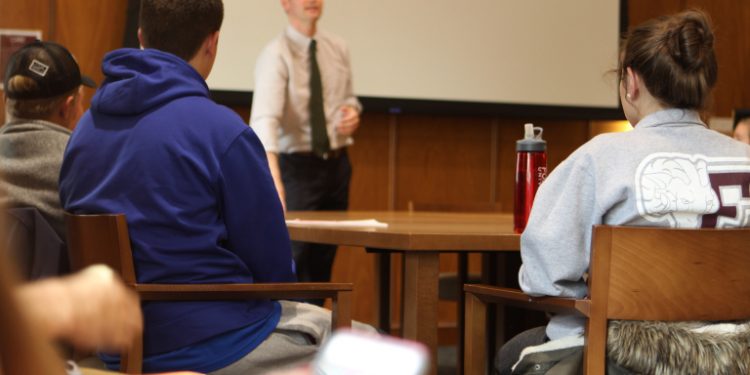Ignatian Week kicked off last Monday with a discussion on the shortcomings and strengths of millennial behavior by Rev. Dr. Lito Salazar, SJ and Dr. Robert Parmach, assistant dean for freshmen.
“It’s important for us to know how your mind works,” Lito said. “We can only catch a glimpse of something about you, and from that small glimpse, we create our programs and our outreach.”
Paramach suggested that “unpacking the millennial mind” can also be helpful for millennials themselves. According to Paramach, self reflection is essential to growth.
“The importance of this lecture can be depicted through an Ignatius quote: ‘He who wishes to reform the world must reform himself,’” Parmach said.
The characteristics of individuals who grew up in different generations have been more acutely studied in the past decade and have received certain labels: The baby boomer generation was born between 1946 and 1964, Generation X was between 1964 and 1977 and Generation Y between 1977 and 1994.
What separates millennials — a group that includes the Fordham student body — from their predecessors is their technological aptitude, according to Parmach.
Technologies such as cellphones and laptops are essential to this generation’s personal and social success.
Parmach also referred to the way that the rise of social media accounts has changed the way millennials socialize with one another compared to their predecessors. This often causes categorical anxiety and a reputation of superficiality among members of this demographic.
Millennials, Parmach said, are often categorized by their psychological isolation and rejection of large institutions, especially religious institutions, and greater concern with their individual spirituality than a creed.
Despite this lack of religious affiliation, Parmach said millennials are highly driven towards volunteerism, embracing diversity and opportunities to forge strong relationships.
Lastly, Parmach noted that millennials also tend to be more introspective and reflective than other generations, especially in regards to topics such as education, poverty and the environment.
Lito expressed his concern in regards to the general superficiality of social media communication and low-effort “friending.”
“We are not challenged to discover the mystery of another person,” Lito said. “We look at the ascetics of a person that are represented in an account. We do not look deeper into the individual and that is essential for both parties personal growth.”
Lito recommended that students combat this trend by having meaningful, face to face interactions with others. Lito encouraged millennials to engage with responsibility more.
“This is why here, in the Manresa Program, we encourage and provide students with volunteer opportunities,” Lito said.
Lito also addressed the rise of atheism and the increase of “Free-range faithfuls,” or people who are disinterested in finding a spiritual home among millennials.
Millennials are considered “less religious” because they have been taught by parents to be self-sufficient and to find their own moral compass, Lito said, due to a distrust of institutions. Millennials and their parents have seen how many different institutions fail.
Millennials are willing to believe in heaven and hell and share their faith with little institutional involvement. They desire a meaningful community based on shared goals rather than creed or blind faith, Lito said.
“What we desire is for you to become a whole person of solidarity,” Lito said. “We want you to become a whole individual.





